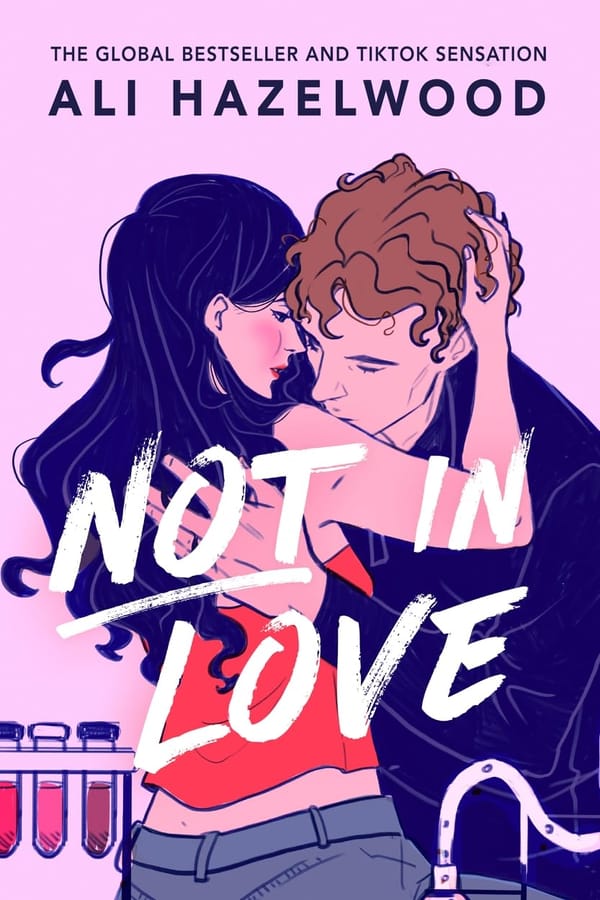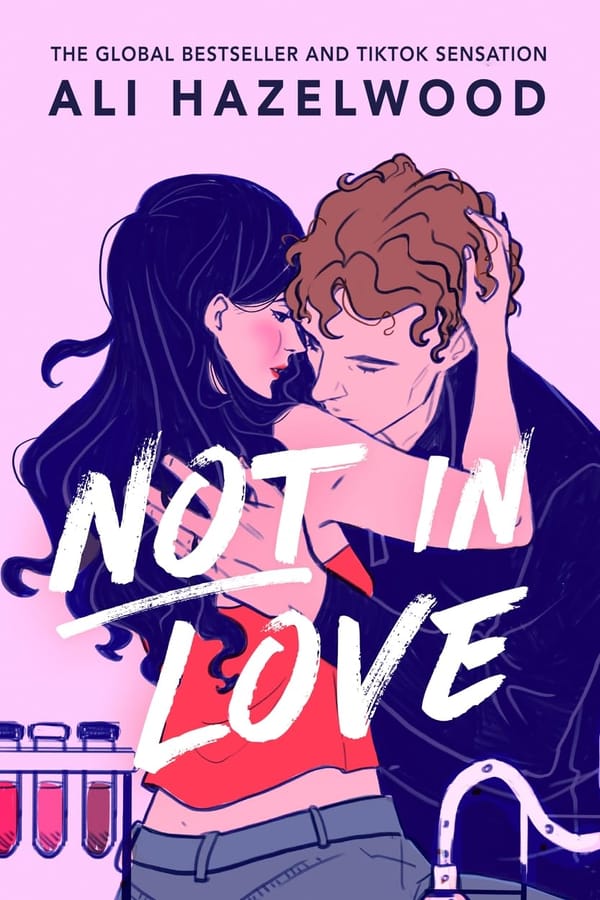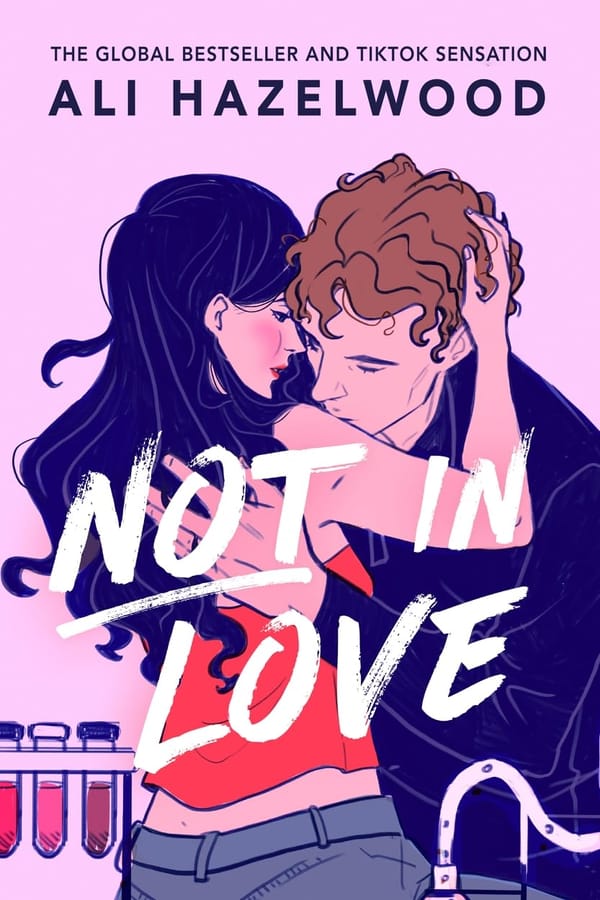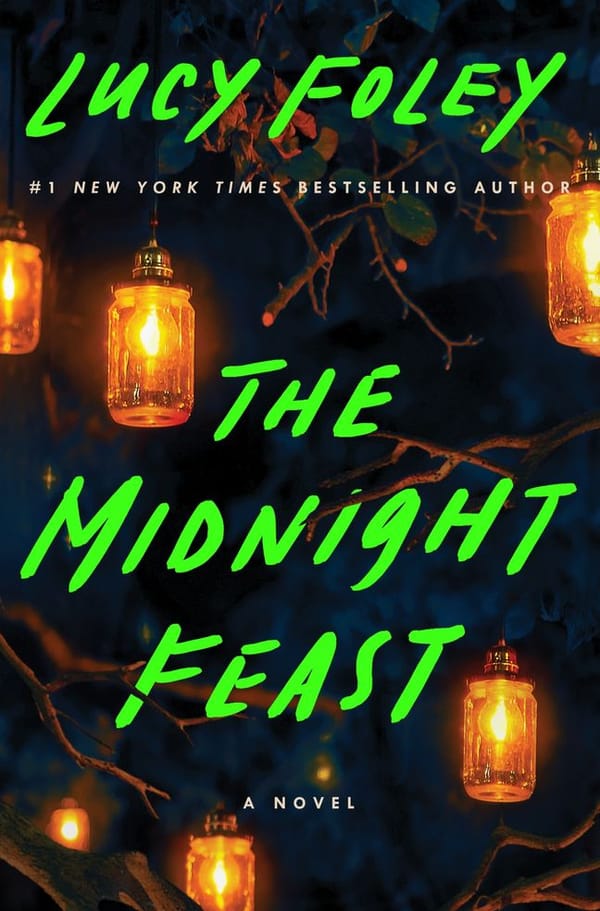Chapter 2: Expiration Dates by Rebecca Serle
It started in the fifth grade with a postcard. I had just come home from soccer practice and found it waiting on my desk in my room, right on top of my dog-eared copy of Jessica Darling.

It started in the fifth grade with a postcard. I had just come home from soccer practice and found it waiting on my desk in my room, right on top of my dog-eared copy of Jessica Darling.
Seth, eight days. The postcard was of Pasadena—bright lights, big city. Huh.
I showed it to my parents. “What is this?” I remember asking them.
They didn’t know. They were busy, then, in those earlier days. My mother worked for a Jewish nonprofit, and my father was head of West Coast sales for a new water-filtration system. The company would fold five years later, and my father would go into pharmaceuticals for a few years before retiring entirely. My parents had always been relatively frugal, and the ups and downs of their financial life did not seem to affect them the way they did most people. At least not to me. We were comfortable. I didn’t realize until much later that my parents had made a lot of deliberate choices to live within their means in a town that encourages keeping up. We had the smallest house on the best street so that I could go to a great public school. All that mattered to my mom was that she had space for a garden—her roses are legendary, and in Southern California they bloom on a rolling schedule from March straight through October.
“Who is Seth?” my father asked. He was by the stove, sautéing onions. My father has always been an equal participant in the kitchen and on the cleaning committee. When my grandparents, his parents, first immigrated to this country, my grandfather opened a kosher deli. Everyone was needed and had to learn to work both behind the counter and sink—including my father.
I thought about it. Seth. I knew who he was. At least, I knew who a Seth was. He was a grade older than me at Brentwood School. He also played soccer, and we were often on the field at the same time. Sometimes after practice if there was an extra blue Gatorade he’d give it to me. I didn’t like blue Gatorade—as far as I could tell it was the one to be avoided, because it turned your mouth an unsightly shade of purple—but I liked them from Seth.
“A kid at soccer?”
My father turned, pointed the spoon at me. “Start there.”
The next day after practice, there was no blue Gatorade. I made the first move.
“Hey, Seth.”
He was tall, with blue eyes and about as many freckles as dots on a ladybug. Red hair, too.
“Hi.”
“Did you send this to me?” I shoved the Pasadena postcard at him.
He laughed. “No,” he said. “That’s funny.”
“Why?”
He looked genuinely perplexed. “I don’t know. It’s a postcard.”
I cannot express how we went from this riveting exchange to him being my first boyfriend, but that is what happened. He asked if I’d like to accompany him to the Bigg Chill, and then we dated for one week and one day. The breakup was mutual. We were better off as friends.
And from that point on, that’s how it happened. Sometimes it would be a postcard, sometimes it would be a sheet of paper, once it was a fortune tucked into a cookie. Sometimes the note would come after I’d met him, or right before, or in the case of Hugo, six weeks in. But it always told me the same thing: the exact amount of time we’d spend together.
Up until this evening, that is, when it gave me no indication of an end at all.
“How is the margarita?” Jake asks me. “I’m more of a vodka guy.”
Vodka. Interesting. “Good,” I tell him. I cock my head to the side. “Spicy.”
Jake laughs. “Are you trying to make me uncomfortable? Kendra told me you do that sometimes.”
“No,” I say. “Am I?”
He looks at me. “A little bit, yes.” He clears his throat. He seems to straighten an invisible tie. “But it’s not bad.”
Jake and I were introduced through my colleague Kendra. Or my ex-colleague. I work for a famous producer, someone you’ve never heard of who has made every movie you have. Irina is her name. Kendra was the old me.
“I think you should meet my friend Jake. He’s thirty-five, newly single—but not in a rebound way—and works in entertainment,” Kendra told me over lunch at the Grove. The outdoor shopping mall in Los Angeles looks like a Hallmark set twelve months a year. There’s a Santa train at Christmas, a giant bunny at Easter, and a Gilmore Girls gazebo the whole year through. There are always twinkle lights and a fountain that’s flow is set to Sinatra songs. What started as a joke—“Want to have lunch at the Grove?”—had quickly become tradition. We both loved the Cheesecake Factory.
“Actor?” I asked.
“Television exec.”
“Boring.”
“Stable,” Kendra said. She lifted a fry into her mouth. “Nice-looking, too.”
“That means unattractive.”
“No, it doesn’t. Nice-looking could mean hot.”
“It could mean cute; I’m willing to give you that much. It definitely doesn’t mean hot.”
“You don’t want to marry someone hot, anyway.”
I figured if it was meant to be, time would soon tell.
“Sure,” I said. “OK. Set it up.”
It’s not that I do not want to get married or even that I do not want to get serious with someone, it’s just that it’s not up to me. Something else has always called the shots in my life—call it the universe, fate, the comedic force of timing. But my life isn’t like other people’s. I have a different set of rules to live by.
Jake orders a margarita, too, and we get chips and guacamole for the table; the “crab” cakes, made with hearts of palm; an order of mushroom fajitas; and a rice bowl that comes with an overwhelming amount of cilantro that does not appear to be destemmed.
“You think we should get the grapefruit ceviche?” Jake asks.
“Let’s skip it,” I say. “Grapefruit’s not my thing.”
Once Marcus the waiter leaves, Jake takes out a notebook.
“I’m sorry,” he says. “I have this weird thing I do where I have to write down every time I see someone wearing Doc Martens.”
“You’re kidding.”
Jake shakes his head, bent over the notebook. “I’m not. It started in college as a kind of joke and then just continued.”
“Any kind of Doc Martens?”
Jake looks up at me, stone-serious. “It has to be the black boots.”
I spit out my margarita. Some combination of lime juice and tequila flies out of my mouth and toward his face. I can see the drops fly—slow-motion molecules. My eyes go wide. I put a hand over my mouth.
“I am so sorry.”
He wipes some liquid from under his eye with his pointer finger. “I deserved it. It is admittedly a very strange thing to do.”
I hand him a paper napkin from the table. “I like strange,” I say.
He takes the napkin and dabs at his face. “Oh, thank God, because tucking in my tail gets very uncomfortable after an hour or so.”
“You’re funny,” I say. “Genuinely, I’m having a good time.”
Jake balls the napkin and then he closes the notebook and tucks it back into his pocket. “Excellent,” he says. “Same here.”
We discover over the course of dinner that we are both fans of Shakespeare, that we love green apples but not Fujis, and that we are both night owls.
“Too many activities value early risers,” Jake says. “Jobs, gyms, farmers markets. Even hikers in LA judge you if you get there past nine.”
I lift my drink. “Hear! Hear!”
“There should be an evening farmers market for people like us where the latest arrivals get the best things.”
“I like the way you think.”
“I’m glad.” He smiles. “So what’s your job like?”
Jake’s on his second margarita, and his cheeks are a bit flushed. It’s endearing. It’s been a while since I encountered a man who couldn’t hold his booze.
My job is a little bit of everything. It is chaotic, sometimes toxic, fun, infuriating, and most importantly, flexible. Which is exactly how I’d describe my boss, too.
“Irina is a little nuts,” I say. “But I like her. Or, I get her, maybe, is a better way to put it.”
“Kendra told me she once made her go through trail mix and pick out only the peanuts? Why not just buy peanuts?”
I shrug. “She likes the overall trail mix flavor. You can’t argue that they don’t taste different.”
“You pick out her peanuts?”
I laugh. “No way,” I say. “Kendra still comes over for that.”
To be honest, none of it seemed that crazy to me. Over the course of the past three years, Irina and I had developed a rhythm. I knew how she took her coffee from every chain on the planet (oat milk misto at Starbucks, oat flat white at Coffee Bean, black coffee with steamed oat milk from Peet’s), that all of her groceries should be organic but if they weren’t, she wouldn’t actually care. That she liked to use miles to upgrade but if you couldn’t guarantee an upgrade, you should book first class. That you could schedule meetings for the morning but they’d never go well, and that every hotel she stayed in had to have a gym. In exchange she didn’t question if I needed Friday off, or came into work at eleven on a Monday.
We had the unicorn of all relationships in Hollywood: a functional female-female one, with a power dynamic at play, to boot.
“She’s just particular,” I say. “But aren’t we all?”
Jake seems to give this more consideration than I feel is necessary. “I don’t think I’m that particular,” he says finally.
“Really.”
“You’re judging me.”
I pick up a corn chip and spoon some salsa on top. “I’m not.”
“You are,” he says. “You’re doing that thing with your eyebrows.”
“What thing?”
“There’s a thing,” he says. He points to the space right above the center of his eyebrows, and wiggles them.
I snort out a laugh, and some salsa gets stuck. I take a big gulp of water.
“I am judging you,” I say once I’ve swallowed.
“I know,” he tells me. “But I don’t mind as much as you’d think.”
“Why’s that?”
He puts his elbows right on the table and leans forward. “I think you’re going to let me get to know you.”
I think about the blank piece of paper in my bag.
“You never told me why you were so late.”
“My car broke down,” he says.
“That’s it? That’s not even a real thing.”
“Cars breaking down? I can assure you it happens all the time.”
“Like a flat tire?”
“Like the carburetor.”
“I don’t know what that is.”
All of a sudden Jake looks uncomfortable, and I wonder if I’m pushing it, treading somewhere I shouldn’t. The car is clearly an excuse. There is a familiarity I feel, with the information I have, that maybe isn’t appropriate yet. This is only a first date.
I’ve had to watch that in the past. I know what someone will mean to me before they do, before I should. Who cares about his car anyway?
“It doesn’t matter,” I say. “At least you drive. I feel like everyone in LA Ubers now. I like the idea, but it makes me too carsick.”
Jake smiles lightly. “You could sit up front.”
“I’m not a big fan of small talk.”
“Me either,” he says. “But then I end up being rude and talking on my phone in the back seat.”
“I find that hard to believe.”
As soon as I say it, my cell phone starts to vibrate on the table. I slip it off and flip it into my bag, but I can see Hugo is calling. Is it nine already? Two hours have gone by quickly.
“I’ll get the check,” Jake says.
“No worries,” I tell him. “It’s my best friend. He’s just calling to see how tonight went.”
Jake responds as he flags down a waiter. “What are you going to tell him?”
I wait until he’s turned back to me to answer. “Solid prospect. Has a shoe fetish. Worth further evaluation.”
He blinks at me slowly, and I feel something unhook in me, like a necklace falling. For such a comfortable night, it’s not such a comfortable feeling.
“I’m glad Kendra set us up,” he says. “I don’t meet a lot of women who seem to have the sense of self you do.”
“I feel like that’s a compliment to me but an insult to my gender.”
“Not at all,” Jake says. He is so sincere it’s almost shocking. “I just don’t meet a lot of women.”
I choke back a laugh as the waiter hands us the check. Jake reaches into his back pocket and pulls out a card. I make a move to take out my wallet, and Jake puts a hand over mine, stopping me.
“Please,” he says. “My treat.”
I think about making a joke, usually I would. Something about the exchange of my company. But instead I thank him.
Jake walks me to my car—a 2012 silver Audi I affectionately call Sullivan. I got him off an actress who had a long-running Fox sitcom and then promptly moved back to Canada when it was canceled.
I notice walking next to him that Jake is a bit taller than I thought earlier. Or maybe it’s just his presence. There is a certain warmth to him that makes him feel larger or more pervasive. In the way he pulls back my chair, in how he holds the door open, in the way he places his hand, gently, on the small of my back when we cross the street in front of a waiting car.
We make it to my meter. The night is stunning around us—clear and warm and crisp, all at once.
“This is me,” I say. “And this is Sullivan.”
Jake considers the car. “Can I call her Sully?”
“Him,” I correct.
Jake holds his hands up. “I don’t like to make assumptions.”
Then he lifts one hand up to cup my elbow. “Can I see you again?” he asks.
I nod. “I’d like that.”
He doesn’t hesitate—he leans down and kisses my cheek. His lips are soft, but then again, most lips are.
“Drive safe,” he says.
“No broken carburetors here.”
He rolls his eyes. “All right, good night.”
I watch him check the street both ways and then jog across, up the block, before I get inside. I open my bag. Sure enough, there are two missed calls from Hugo, and a text: Must b good. I’m at Laurel. U coming?
And then I take out the paper. It occurs to me that I should not have stuffed it down into my bag. I should preserve its integrity. It is, after all, the final note. The one I have been waiting for. It shouldn’t be bent or crinkled.
Luckily, it’s held up well. Just some granola crumbs. I brush them off.
Jake, it reads. No more, no less.
Just finished, I write. Give me twenty.
I want to tell someone, and he’s the only one I can. Daphne Bell has finally met her match.





